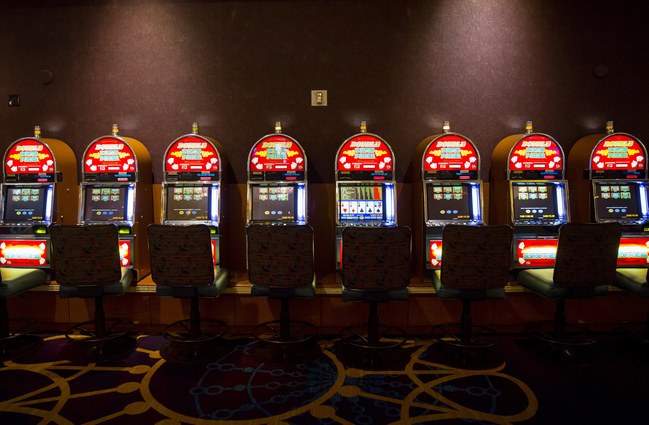
Las Vegas Shooter’s Video Poker Habits Give Clues But Not Answers
As stories about Las Vegas shooter Stephen Paddock emerge, the first bits of information available about the semi-reclusive man who killed 58 innocent concertgoers and injured nearly 500 revolve around his life as a regular gambler.

Video poker provides the jackpots and casino perks to make it popular with high-stakes players. (Image: New York Times)
We hardly have enough information yet to understand the mind of a mass murderer. But by piecing together what Paddock’s brother has said, what police and media have found, and what some gambling experts say about his game of choice, video poker, we do start to get a picture of a man whose retirement days were shaped by the casino, and the perks it brought him as a player of $100 hands.
Blending In
Media reports refer to Paddock as a high roller. And certainly casinos wanted him to feel that way.
Paddock was a retired accountant, and before that he was a career civil servant. From 1976 to 1985, he worked for the post office as a mail carrier, then as an agent for the IRS, and eventually as an auditor for the US government’s Defense Contract Audit Agency. But he made his money, the type that allowed him to gamble comfortably with up to $1 million a year, buying and selling real estate.
His brother Eric Paddock said he took his gambling seriously, treating it like a job, and was very mathematical as he reached the bottom level of the high-roller tier. He shared a story of bringing his 20something son to the Wynn where they all were celebrating Stephen’s reaching “Chairman’s Club” status, which allowed the three of them to dine on expensive sushi, and see shows, with their whole stay being comped.
“He wasn’t a whale, but he was certainly in a high-roller category,” Anthony Curtis, a casino expert and founder of Las Vegas Advisor, told the Las Vegas Review-Journal. “He definitely was a player who enjoyed that status at several big places on the Strip.”
Curtis had been talking to his sources in Las Vegas casinos, and he discovered that Paddock had six-figure lines of credit at multiple casinos including the Cosmopolitan and the Wynn.
Based on the volume of gambling, Curtis said, Paddock would have been entitled to free rooms as well as complimentary shopping for himself and girlfriend, potentially up to $5,000.
At Caesars, he achieved Seven Star status, their highest level of rewards, but he was considered a “low seven,” meaning he could get most anything he wanted, but didn’t get quite the same attention as high rollers who gambled millions at a time. This, some contend, is what allowed him to fly under the radar at casinos.
Curtis would later tell the New Yorker that Paddock was a customer of his, having used his website to buy videos on how to play video poker.
Advantage Play
Video poker has changed little since the 1970s. Though there are more than a dozen variations, it remains one of the most popular casino games.
Video poker takes slot machines to the next level. More than just pulling the handle, video poker has shown such strong appeal, gaming experts say, because it rewards skill, offers a low house edge, provides regular little wins with the realistic possibility of big jackpot, and allows great anonymity, for people who prefer playing alone.
“If you look for the most liberal pay tables and play them properly, you can have a thin advantage,” says Michael Shackelford of the instructional website Wizard of Odds. “Some pay tables, which are slightly in the machine’s favor, can return over 100 percent, if you factor in incentives such as cash back, free play, mailers, and other comps.”
It’s in these comps where even a long-term net loser can feel like a winner. The types of player who, like Paddock, is willing to lose six figures, is the type for whom casinos compete to keep on their properties.
Paddock earned comps while playing video poker in the high-limit slot room. These comps include the luxury suite on the 32nd floor of the Mandalay Bay, which on a typical Sunday cost $500 a night.















0 Comments